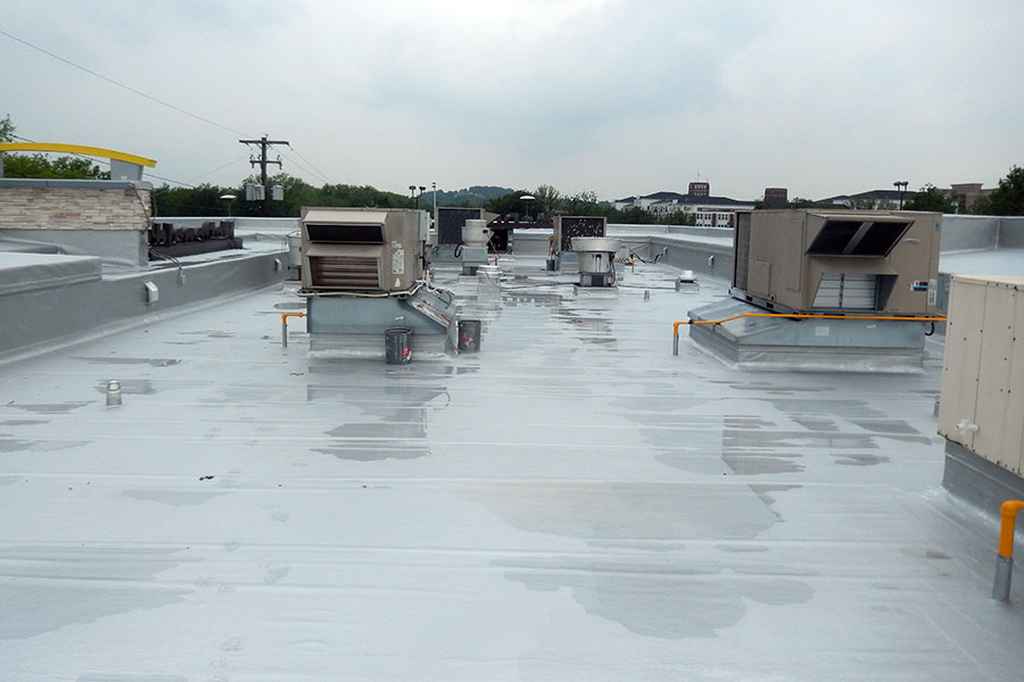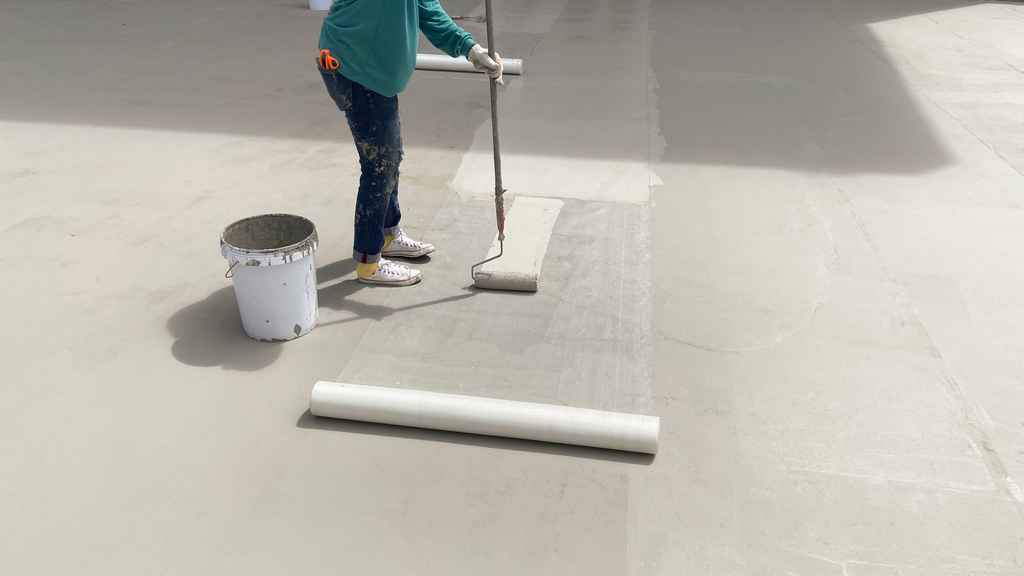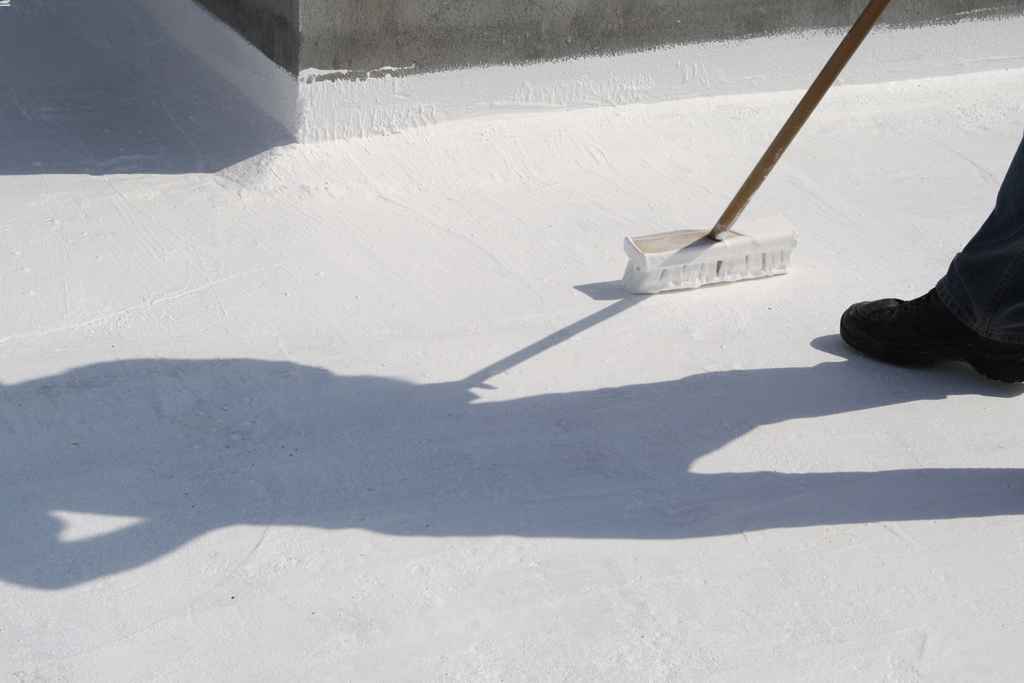Types of Roof Coatings
Acrylic Roof Coating
Acrylic coatings are water-based and generally sold in white, tan, and gray, as well as a variety of custom colors. This commercial roof coating is suitable for high UV environments where a reflective roof is desired. Companies make acrylic roof coatings with specialized versions that can be applied to specific substrates. Acrylic coatings are often used to restore aged metal roofs, but they also work on a number of different roofing substrates such as modified bitumen, single-ply, built-up roofs, and spray polyurethane foam.
Acrylic roof coatings are among the most durable and inexpensive elastomeric coatings in the industry. Comprised of high solids emulsion polymers and potent biocides, these highly reflective coatings are ideally suited for extreme UV climates and provide superior resistance to mildew and dirt accumulation. Acrylics do not stand up well to ponding water and are only recommended for roofs with positive drainage. Cold temperature applications can also be a problem.

Image via americanweatherstar.com
Polyurethane Coatings
Polyurethane coatings are typically solvent-based and have good mechanical properties and high abrasion resistance, and tensile strength. They are best used in hail-prone regions in the West and where the surface is exposed to heavy foot traffic. When it comes to strength, durability, and adhesion, urethane roof coatings are second to none. Compared to other coatings, they are more impact-resistant and are better suited to handle pedestrian traffic. They are also strong enough to endure the natural expansion and contraction (thermal movement) of roof structures and the negative effects of ponding water.
Urethane coatings can be challenging to spray, harsh on installation equipment, and highly odorous. It’s also worth mentioning that urethanes are a moisture-cure coating, meaning they are constantly curing—even in the pail.
Silicone Coatings
Silicone roof coatings, like acrylics, are suitable for high-UV environments because it reflects the sun’s rays. A silicone roof coating is used in areas where rain comes daily, and the roofs are often wet and have ponding water. They are the preferred choice when it comes to UV protection and resistance to ponding water. They erode much slower than other coatings without becoming brittle or hard. Modern silicone formulations have a high-solids content that typically exceeds 90 percent. This means less material is needed to achieve the required dry film thickness.
Silicone coatings are created by adding solvents and a catalyst to a silicone base. Available in white, gray, or tan, silicone can be installed on a variety of roof types including metal, modified bitumen, single-ply, EPDM, built-up roofs, and spray polyurethane foam. Depending on the substrate, most silicone roofing systems require multiple coats at 1.5 gallons per 100 square feet.
Silicones attract dirt rather easily. This means the system will gradually lose reflectivity over time if not cleaned periodically. They are also extremely slippery when moisture is present. Resistance to tearing is another inherent weakness. If pedestrian traffic is expected on the roof, we highly recommend incorporating roofing granules into the system.
Denver Roof Coatings Is Here For You
At Denver Roof Coatings, we provide leading residential and commercial roof coating services all across the Denver area. Your home’s roof has a big job to do. It protects your family, pets, and possessions. You and your neighbors deserve to feel safe and secure. At Denver Roof Coatings, we treat every roof replacement, roofing service, and repair as if it were protecting our own family. If you’re ready to apply roof coatings or other services to your property, call us today for a free estimate.



